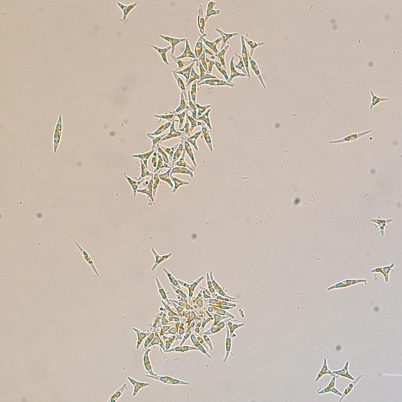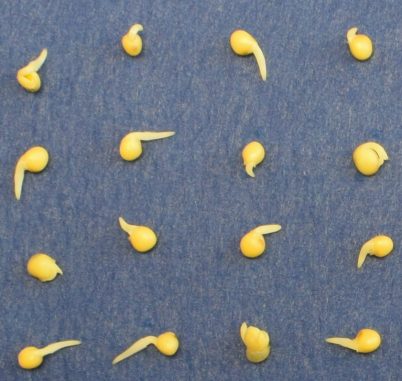
Aim 1: Identification of new components of the Polycomb pathway
Polycomb Group (PcG) proteins are key components of the epigenetic machinery and master regulators of development in plants and animals. The components of this pathway show a high conservation among plants and animals; however, we know that plants have specific developmental requirements and, therefore, plant-specific PcG proteins have appeared during evolution. Among these plant-specific developmental requirements there are traits that have a strong impact in human life, such as flowering and seed development.
The main goal of this project is to unravel the diversity of PcG complexes involved in specific aspects of plant development by the identification of novel PcG components in Arabidopsis and their molecular functions in the regulation of the activities of the PcG pathway.

Aim 2: Fucoxanthin production in diatoms
Fucoxanthin is the main carotenoid produced in brown microalgae and has a high biotechnology value thanks to its many properties (i.e., antioxidant, antitumoral, antidiabetes, antiobesity, anti-inflammatory, cardioprotective, neuroprotective and hepatoprotective activities). However, the fucoxanthin biosynthetic pathway is not yet fully understood, especially how this genetic pathway is regulated in response to the environment. For instance, fucoxanthin production is positively affected by light, but there are still many aspects of this regulation that are still unclear. It has also been proposed that epigenetic mechanisms may also play a key role in the level of fucoxanthin production in response to different environmental cues, such as light. Hence, this project aims to use the model diatom Phaedodatylum tricornutum to investigate the genetic and epigenetic regulation of fucoxanthin biosynthesis in response to light. This analysis may help us to identify biotechnology tools to increase fucoxanthin production.

Aim 3: Identifying epigenetic tools for seed vigour
We are highly dependent on seeds, because seeds are the main source of food in the planet and, even more considering that we need to secure food for a world population that will reach 9 billion soon. Seeds have also a strong potential to be used as main substitutes of petrol-based fuel in the future. Therefore, seeds are main components of agricultural strategies. On the other hand, climate change has a high influence on plant behaviour and, specially, on seed germination, one of the most vulnerable moments in the plant life-cycle strongly affected by abiotic stresses. We want to understand which epigenetic processes are involved in the regulation of seed vigour and use this knowledge to provide new tools for improving seed vigour and seed adaptability to environmental stresses. To develop this project we use two Brassica crops as our plant models, Brassica napus (rapeseed) and Brassica rapa (field mustard).